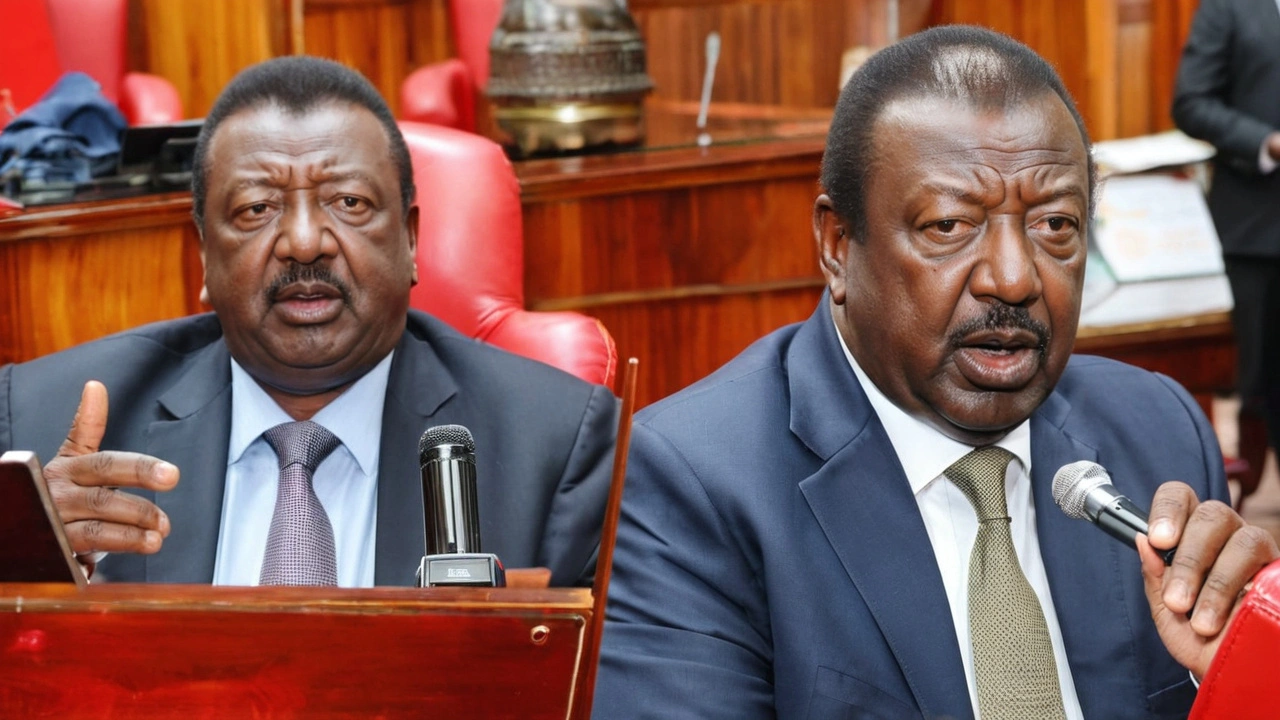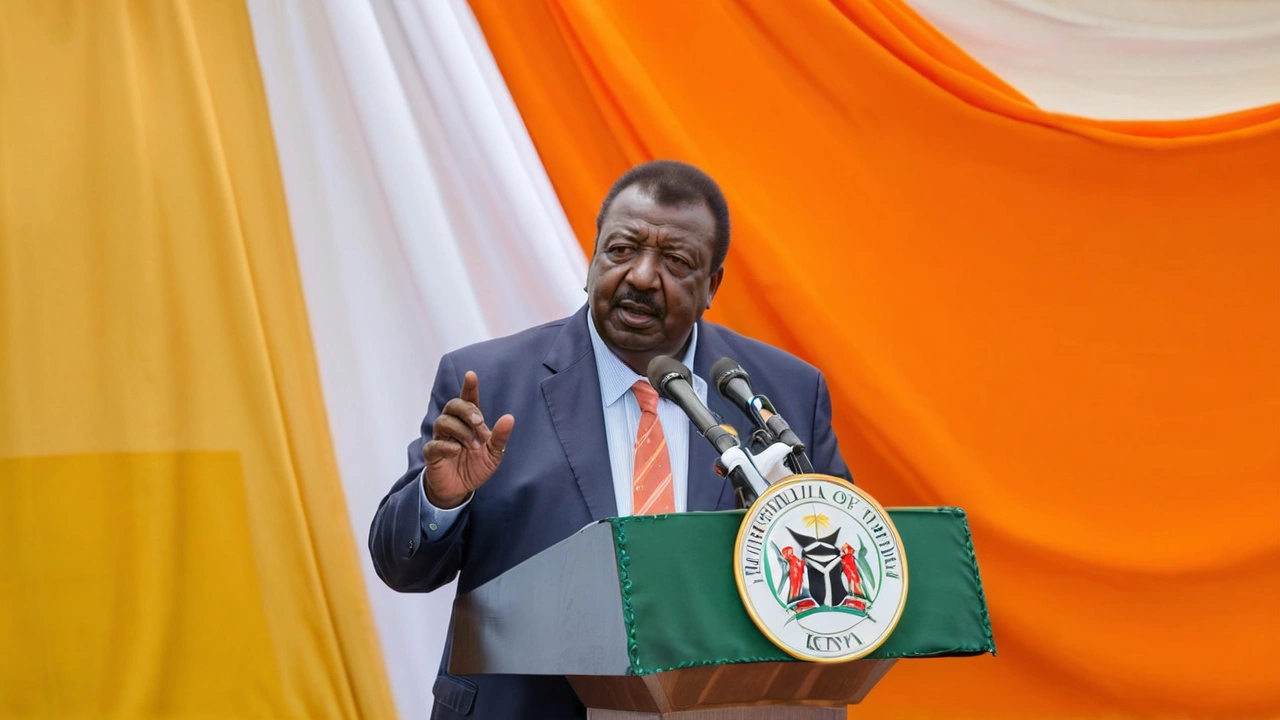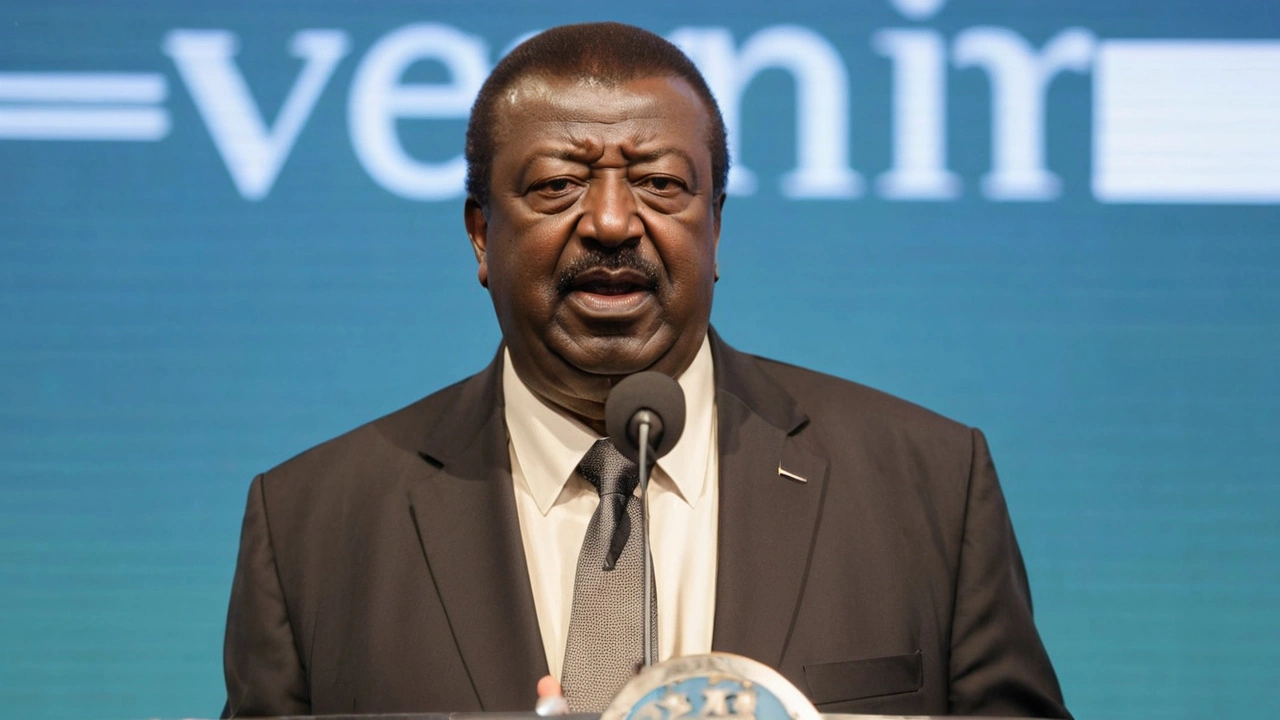
Musalia Mudavadi Addresses Allegations on JKIA Sale
In recent weeks, the airwaves and public discussions have been buzzing with rumors that the Kenyan government is in the process of selling Jomo Kenyatta International Airport (JKIA), one of the nation's most significant assets. Prime Cabinet Secretary Musalia Mudavadi has taken a front-line position in addressing these concerns, aiming to bring clarity and reassurance to the public.
Appearing before the National Assembly’s Budget and Appropriations Committee, Mudavadi, who is currently the acting Cabinet Secretary for the National Treasury, refuted these claims vigorously. The rumors, he insisted, are unfounded and not grounded in the parliamentary procedures that govern the sale of national assets. Mudavadi emphasized that any sale of a public asset like JKIA would necessitate a thorough public process that involves parliamentary scrutiny and approval.
Parliamentary Approval: A Pillar of Public Trust
The procedure for selling a public asset, a process deeply rooted in legislative oversight, is designed to ensure transparency and accountability. Mudavadi assured the Committee and the public that no unilateral decisions could be made regardinJKIA. He urged patience and trust in the established protocols that protect national interests and public assets from arbitrary sale.
Indeed, JKIA is not just any airport. It is a pivotal transportation hub in East Africa, playing a critical role in facilitating both regional and international travel. Its strategic importance cannot be overstated. Mudavadi stressed that such an asset could only be handled with the utmost care and responsibility.
These assertions were made against a backdrop of increasing public anxiety, fueled by ongoing protests and vocal demands for transparency. Kenyans have been particularly vocal about ensuring that their valuable national assets remain in the hands of the people and not sold off to the highest bidder without due process.

Modernization Needs and Transparency
While addressing the committee, Mudavadi also touched on the pressing need to modernize JKIA. The airport, despite its importance, has faced challenges that stem from outdated infrastructure and capacity constraints. Mudavadi stated that investing in modernization and building a new terminal is not just a luxury but a necessity. He called on the Kenya Airports Authority (KAA) to roll out their investment programs with greater transparency to avoid fueling further speculation and mistrust.
Mudavadi made it clear that transparency in these investments is crucial, not only to gain public trust but also to ensure that the projects are carried out efficiently and effectively. He called on the relevant authorities to make every effort to keep the public informed about their plans and progress.
Addressing Lease Deals
The committee session also delved into specific allegations regarding lease deals. Senator Richard Onyonka had previously requested clarification on purported lease arrangements involving JKIA. Notably, there were reports concerning a potential 30-year lease to ADANI Commercial, an Indian conglomerate known for infrastructure development. Questions have been raised about the terms and processes of such deals, stirring further public disquiet.
Mudavadi acknowledged these concerns and reiterated that any leasing or sale agreements would be subjected to the same rigorous process as a direct sale. He assured that no secret deals were taking place and that any agreements would be transparent and above board.
The Prime Cabinet Secretary's appearance before the committee and his firm statements have gone a long way in quelling some of the public’s fears. However, he also made it clear that continuous vigilance and open communication would be necessary to maintain public trust.

Public Outcry and Protests
The issue of selling or leasing JKIA has not only been debated in parliament but has also spilled out onto the streets. There have been several protests by various groups who are concerned about the future of this national asset. These protests underscore the deep-seated value that Kenyans place on their public assets and their right to be fully informed about any decisions that affect them.
Protesters have been calling for greater transparency and accountability from their government. They want assurances that due process will be followed and that no backdoor deals will be made which could compromise the country's interests. The level of civic engagement on this issue illustrates a robust democratic spirit and a population keen to hold their leaders accountable.
Looking Forward: Building Trust
In light of these events, the Kenyan government faces the continued challenge of building and maintaining public trust. Mudavadi's statements have provided a degree of reassurance, but the government's actions in the coming months will be crucial. Ensuring that all steps in the process are open and transparent will be key to rebuilding the trust that has been shaken by these rumors.
Furthermore, there is a need to address the underlying issues that have given rise to the speculation in the first place. Modernizing and expanding JKIA is a critical necessity, and pursuing these upgrades with full transparency will help to avoid similar issues in the future.
In conclusion, while the government's declared commitment to transparency and due process is a step in the right direction, they will need to maintain this commitment going forward. The public will be watching closely to see how these assurances are put into action, and whether the promises made in parliament are upheld in practice. The handling of JKIA’s future will serve as a litmus test for the government’s overall credibility and their dedication to protecting national assets.